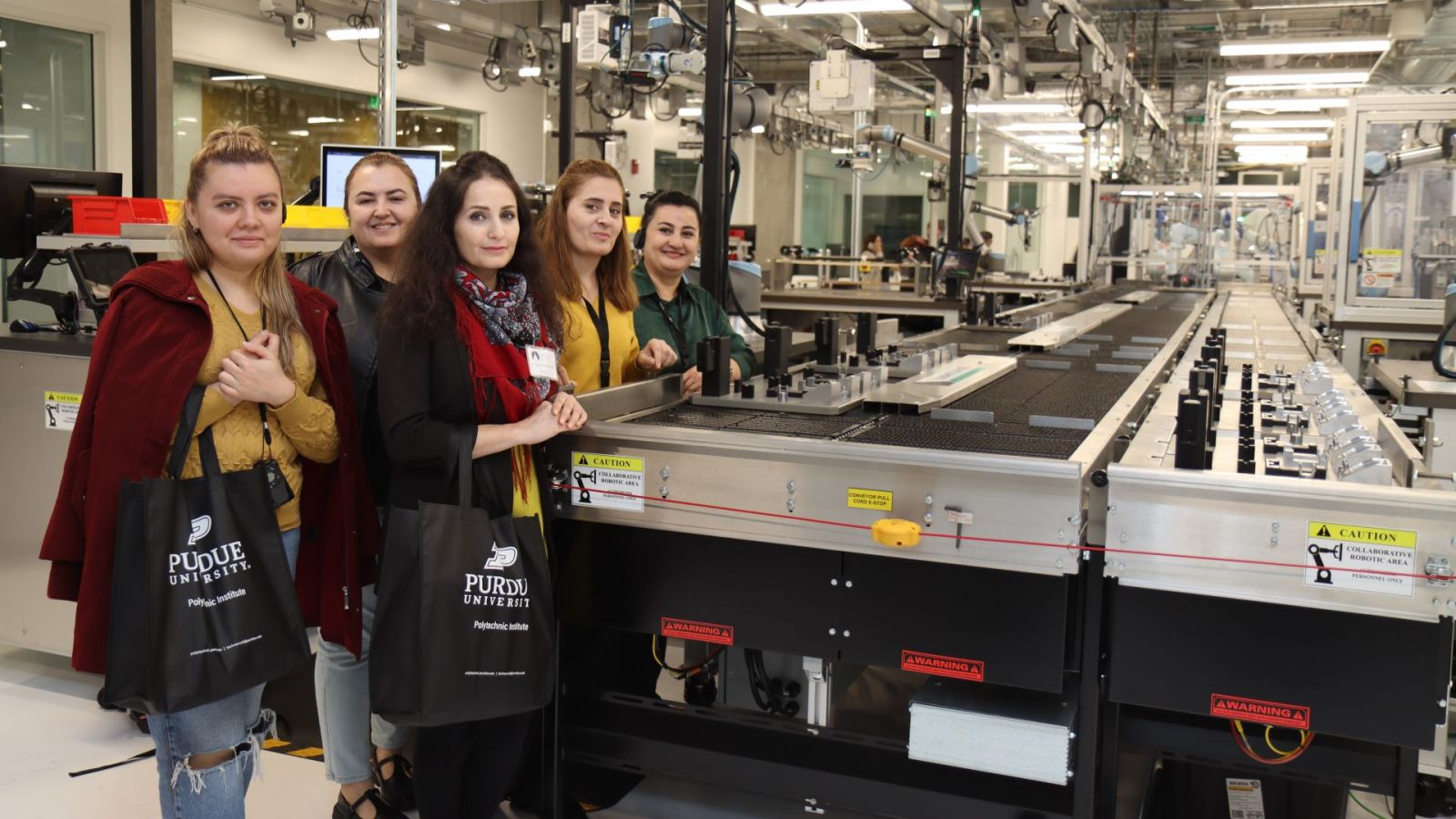
A group of five female professionals in STEM disciplines visited Purdue Polytechnic this Thursday—they were given both an extensive tour of the college’s facilities as well as an opportunity to ask direct strategic questions about how to enrich recruitment efforts for women and girls in their home country of Tajikistan.
Each of the women were selected to be a part of the Congressional Office of International Leadership (COIL) by the U.S. Embassy in Tajikistan. This is Congress-funded initiative designed to create cross-cultural understanding and professional development opportunities for leaders who work internationally. COIL helps mid-career professionals from various countries build networks, share expertise, and gain insights into American practices in fields relevant to their careers.
The women were (from left to right in headline photo):
- Habibakhon Aslonova
- Zahina Nazarova
- Rangina Davlatmirova
- Najmiya Ozodbekova
- Mavluda Davlatmamadova
They met with Polytechnic faculty and staff, including Grant Richards, Stephen Musick, Rua Williams, Elizabeth Barajas, Steven Elliott, the Recruitment and Diversity teams, the Retention team, and Dean Daniel Castro. Student ambassadors Lily Renke and Aashika Parekh also provided a current student perspective for the visitors.
Toni Munguia, director of recruitment and diversity, also answered questions and provided concrete advice on recruiting women and girls into STEM. “I think our student population was around fifteen percent women in 2017, and now it’s twenty four percent,” Munguia said. “So we still want to see more young women in the Polytechnic, because a diversity of perspectives in STEM is so valuable, but you can already see that there are tangible steps you can take that have real consequences.”
The recruitment conversation centered on a few key question areas. These included legal differences between Tajikistan and the U.S., particularly in how educational institutions are allowed to show support to students. There were also strategic questions about gauging interest from young women, how to change their minds about STEM disciplines, and also how to support the few women that are already in certain programs at universities in Tajikistan.
“Beyond just recruiting, it’s important to show support and ally yourself with the women you already have,” said Allison Maldonado-Ruiz, associate director of retention and diversity. “They become your best ambassadors. And providing the most you can for them is also a proof-of-concept for future generations of women in your programs, because you need to prove that you can provide an actual support structure first before the new recruits get there.”
The women from Tajikistan have toured Purdue throughout the week, and will continue into Friday.
Additional information
